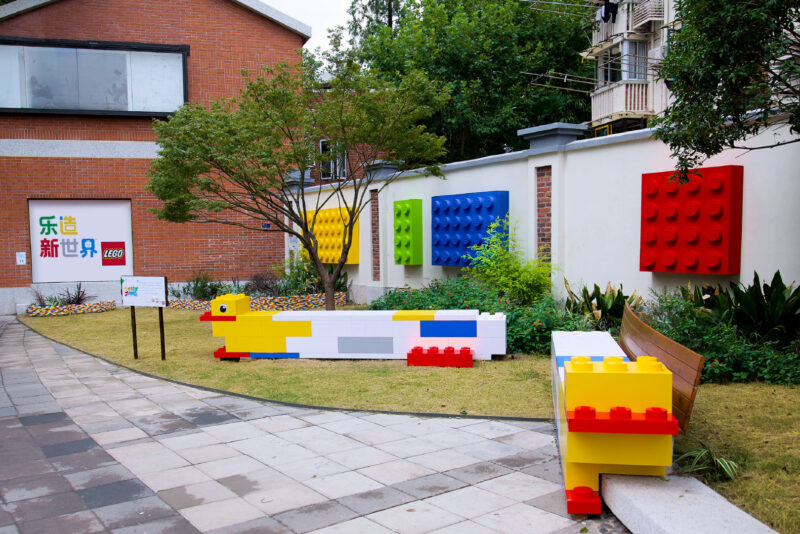Key takeaways:
- Taiyi Group, a blockchain technology start-up headquartered in Hong Kong, is gearing up to build a metaverse empire in China.
- Its ambition has so far drawn in interest from other Chinese tech giants who are also frontrunners in China’s metaverse race, namely Tencent, HTC and most recently, Baidu.
- The group debut China’s first cultural-tourism e-commerce metaverse ahead of Double 11, featuring one of China’s busiest demonstration pedestrian streets visited by 120 million every year.
It might not be a household name yet even in China, but Taiyi Group, a Hong Kong-based blockchain technology company has already drawn attention from China’s tech mammoths, according to its official website, including Tencent, JD Tech (JDT), a fintech subsidiary of the tech firm JD.com, HTC, a Taiwanese consumer electronics maker, and Tencent – all active players in the making of the metaverse in China.
Added to the list most recently is Chinese tech giant Baidu, who struck a deal in late October that collaborates its own metaverse platform Baidu Xirang with the equivalent Taiyi Lingjing developed by the partner, to bolster the metaverse ecosystem.
Taiyi Group became the first company at home that has obtained authorisation from Epic Games in the UE metaverse category.
Preparing to dive into the metaverse
Earlier in April, Taiyi Group was reported to have been officially granted the Ureal Engine 5.0 (UE5) metaverse license in China. UE5 is the latest version of the software released by the American video game developer Epic Games, which offers a multi-tool development environment for games and other 3D content. This also marks Taiyi Group becoming an official partner of UE5 in the metaverse field and the first company at home who has obtained authorisation from Epic Games in the UE metaverse category.
Following the authorisation, the group took another stride by acquiring Huoxun (Huobi Chat), an instant messaging social communication tool under Huobi Group. Formerly a popular cryptocurrency exchange platform in China, they were forced to terminate its service in China following Beijing’s ban on all cryptocurrency-related transactions in the country in 2021. Huobi Global was finalising the buy-up in October by About Capital, a Hong Kong fund management firm, and the Huoxun platform will be used to facilitate the optimisation and upgrading of Taiyi Group’s virtual system.
Launched in 2018 by Huobi Group, Huobi Chat is reported to have housed millions of monthly active users with the accumulated registered users surpassing 7 million as of July 2022. The existing community is believed to be a vital asset in achieving Taiyi’s goal of “turning the app into the world’s first social platform dedicated to digital collectibles and metaverse.”
Metaverse incubator for culture, tourism, and more
Taiyi Group has been an active metaverse incubator nurturing multiple metaverse IPs, so far covering the cultural and tourism industries, which landed in its own metaverse platform Taiyi Lingjing with more scenarios ranging from art and music to esports and education expected to follow.
Taiyi aims to “turn Huobi Chat into the world’s first social platform dedicated to digital collectibles and metaverse.”
The latest move saw the launch of Datang Lingjing on 18 October, China’s first cultural tourism e-commerce metaverse, timely tapping into the country’s continued e-commerce sensation ahead of the presale of the highly anticipated online shopping festival Double 11. The launch was a joint effort by JDT in partnership with the local cultural authority in Xi’an.
Datang Everbright City is one of China’s busiest demonstration pedestrian streets curated based on the cultural and architectural aesthetics of the Tang Dynasty and draws in an average of 120 million footfall annually. The virtual replica, therefore, is designed to energise the real economy with a fully immersive digital experience spurring consumer demands while also showcasing the beauty of the historical neighbourhood.
Enabled by JDT’s technical advances, the digital street market also allows a cross-scenario experience including virtual shopping, socialising or hanging out with friends, watching live streams and performances. On the eve of the official launch of Datang Lingjing, the platform threw an “open-air concert” to celebrate the meta space, which was presented by a youthful band specialising in folk rock music, giving a nod to the contrast between modern technology and the cultural heritage that the featured street embodies.
The first cultural-tourism e-commerce metaverse is reported to have drawn in hundreds of brand names, including HTC, Chinese beer maker Tsingtao Brewery, and the Chinese appliance manufacturer Gree Electric. The virtual experience was seasoned with a points-based rebate mechanism, that encourages consumer participation in activities such as lucky draws, virtual stall renting, and product exchange, therefore, allowing a more participatory and playful digital journey.
The tie-up with Baidu Xirang, a front runner in China’s metaverse race, which has seen collaborations with global labels including Dior and Prada, is expected to bring about a more diverse, open, and accessible digital ecosystem, levelling up the building of the metaverse with an improved interactive experience while also driving the upgrade of China’s industry digitalisation.









